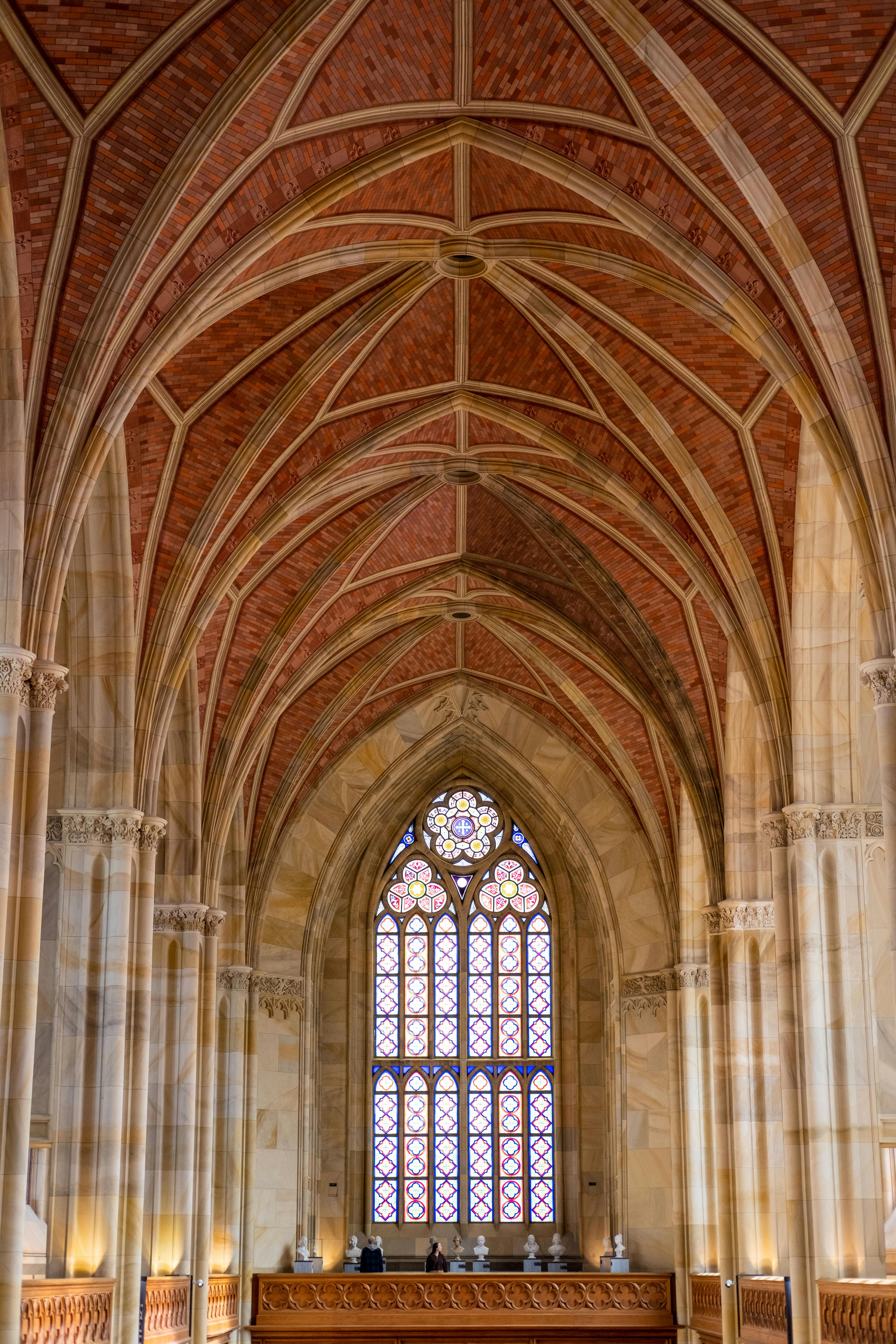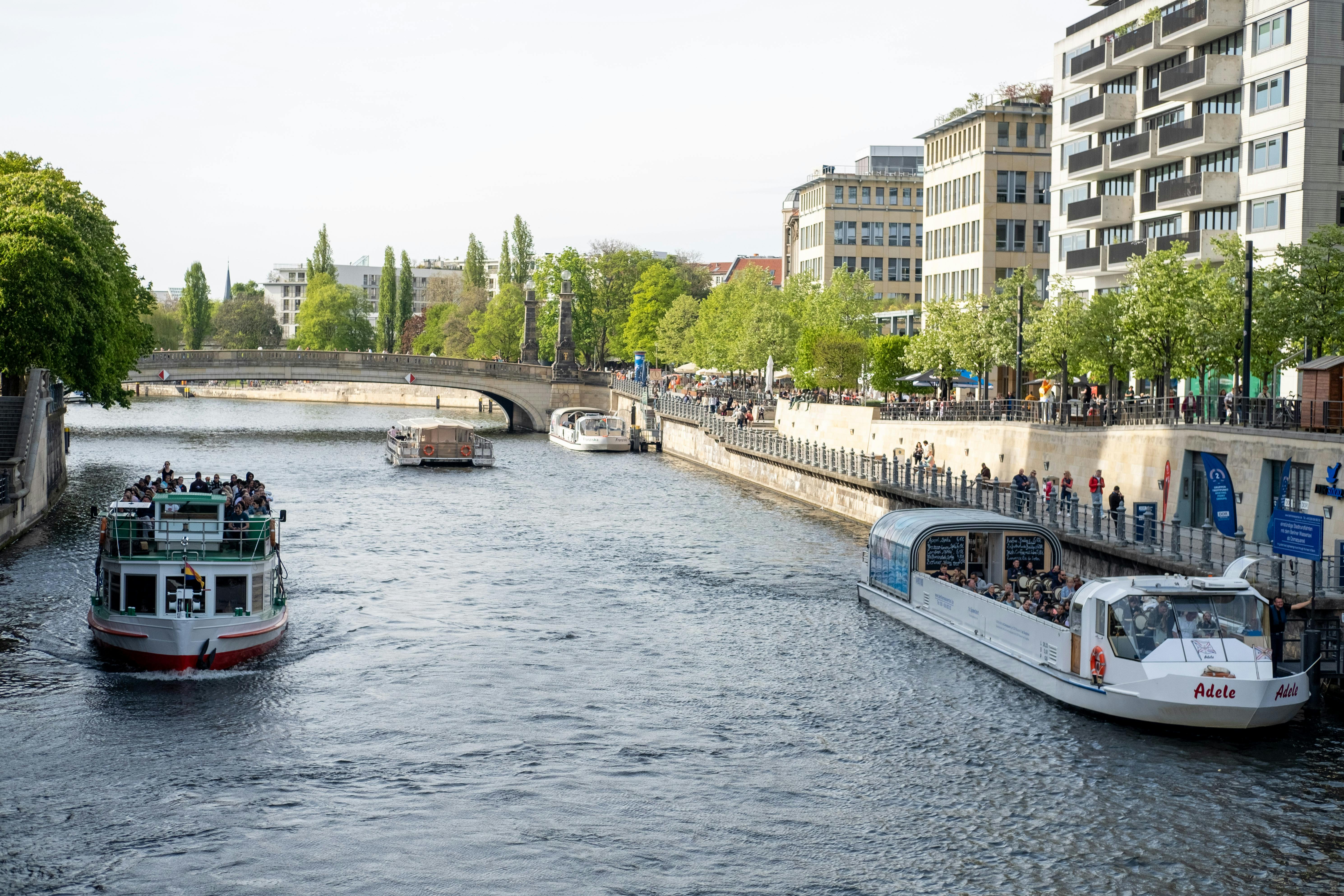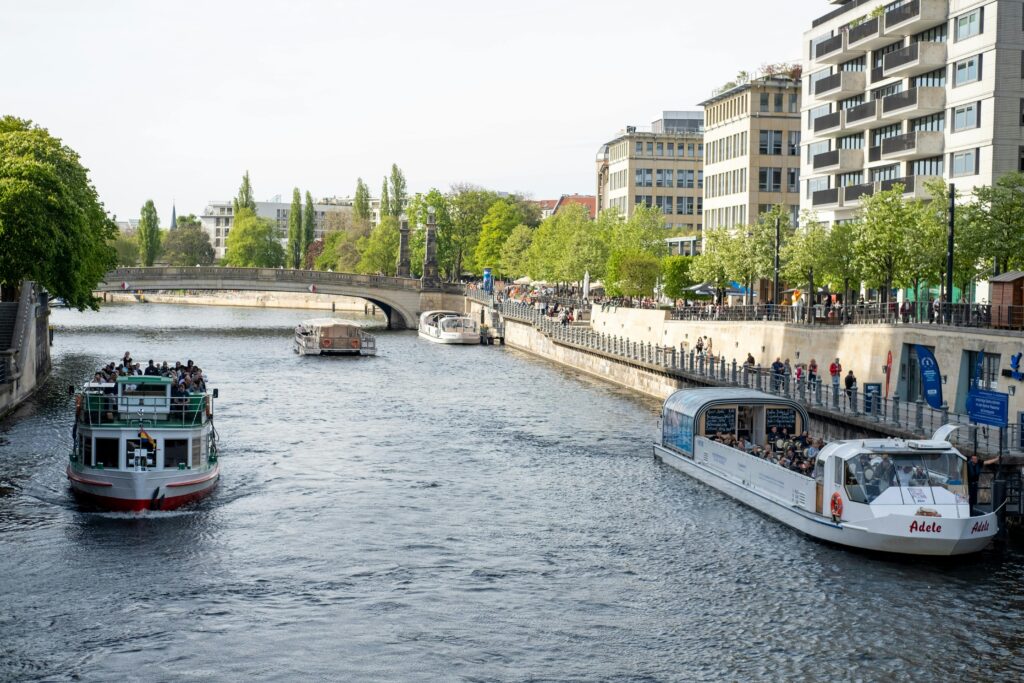Berlinale Germany
Explore the Berlinale Germany, one of the world’s most prestigious film festivals since 1951, showcasing global cinematic excellence and cultural diversity in Berlin annually.
The Berlin International Film Festival, commonly known as Berlinale, is one of the most prestigious and largest film festivals in the world. With its inception dating back to 1951, Berlinale has grown into a significant event in the cinematic calendar, held annually in Berlin, Germany. This festival is not just an amalgamation of glamorous premieres and exquisite red carpets; it is a cultural phenomenon that encapsulates the diversity and dynamism of the global filmmaking industry.
Historical Background
The genesis of Berlinale traces back to post-war Germany, a time marked by devastation and a quest for cultural revival. Initiated by Oscar Martay, a film officer of the American Military Administration, the festival was originally intended as a means to provide the German people with cultural rehabilitation and international exposure. The inaugural edition in 1951 featured Alfred Hitchcock’s “Rebecca,” setting a high standard for the quality of films to be showcased.
In the decades that followed, Berlinale gained international recognition for its commitment to showcasing films that offer profound social, political, and artistic commentaries. From being a Cold War relic to a modern-day symbol of international cinematic excellence, the festival has continually evolved, adapting to the shifting paradigms of global cinema.
Sections of Berlinale
To cater to the diverse tastes and preferences of audiences, Berlinale is structured into various sections, each with its own unique character and focus.
Competition
The Competition section is perhaps the most anticipated and prestigious part of Berlinale. Films from all over the globe vie for the coveted Golden Bear and Silver Bear awards. These awards are not just symbols of cinematic excellence but are also seen as indicators of future success, often propelling films into mainstream consciousness and critical acclaim.
Berlinale Special
The Berlinale Special presents current works by contemporary filmmakers, honorees, and extraordinary formats. It includes both gala premieres in exclusive settings and special presentations with a focus on exceptional new productions. This section echoes the thematic and stylistic diversity that the festival champions and often features films with profound socio-political narratives.
Panorama
Panorama is known for its daring and unconventional programming. It showcases a wide array of films that include works by renowned directors as well as new talents. This section is characterized by its willingness to push boundaries and challenge conventions, offering a platform for innovative and progressive cinema.
Forum
The Forum section delves deeper into the experimental and avant-garde side of filmmaking. It emphasizes works that challenge traditional narrative structures and aesthetics. Known for its intellectual rigor, the Forum section attracts filmmakers and audiences who are keen to explore the philosophical depths and idiosyncrasies of cinema.
Generation
Dedicated to a younger audience, the Generation section is divided into sub-categories Generation Kplus and Generation 14plus. It showcases films that deal with youth-related themes, offering insights into the lives, aspirations, and challenges faced by young people globally. This section aims to nurture a love for cinema in younger generations while addressing issues pertinent to them.
Berlinale Shorts
As the name suggests, Berlinale Shorts is dedicated to short films from around the world. This section celebrates the art of short storytelling, presenting a diverse range of genres and styles. It provides a platform for emerging filmmakers to display their creativity and innovation within the concise format of short films.

The Berlinale Talents Program
One of the standout features of Berlinale is its commitment to fostering new talent. The Berlinale Talents Program is a prestigious networking and development event that brings together 300 emerging filmmakers and professionals from across the globe. This initiative focuses on providing young talents with the opportunity to interact with established industry experts, offering workshops, discussions, and masterclasses that cover a wide array of subjects related to filmmaking.
The program has been instrumental in shaping the careers of many participants, offering them unique insights and opportunities to showcase their work to a global audience. With a strong emphasis on innovation, creativity, and collaboration, Berlinale Talents continues to be a cornerstone of the festival’s commitment to nurturing the next generation of filmmakers.
The European Film Market (EFM)
Running parallel to the festival is the European Film Market (EFM), one of the most crucial trade events in the global film industry. The EFM serves as a meeting point for producers, distributors, buyers, and financiers, facilitating the exchange of ideas and the negotiation of deals. With its strategic timing at the beginning of the year, the EFM plays a pivotal role in setting the tone for the international film market.
The market’s dynamic environment provides fertile ground for networking and business development. It hosts a series of panels, discussions, and presentations that address the current trends, challenges, and opportunities within the film industry. By offering a comprehensive platform for commerce and creativity, the EFM underscores Berlinale’s status as a central hub for the global film community.

Impact on German Cinema
Berlinale has had a profound impact on the German film industry. By providing a global platform for German filmmakers, the festival has helped to elevate the profile of German cinema on the international stage. Many German films that premiered at Berlinale have gone on to achieve critical and commercial success, both domestically and internationally.
Furthermore, the festival’s emphasis on cultural and political themes resonates strongly with the German cinematic tradition, which often delves into complex social and historical issues. Berlinale’s support for German films not only enhances their visibility but also encourages the exploration of bold and innovative narratives that challenge and enlighten audiences.
Celebrating Diversity and Inclusion
Berlinale’s commitment to diversity and inclusion is evident in its programming and initiatives. The festival strives to represent a wide array of voices, highlighting stories from marginalized and underrepresented communities. This dedication to inclusivity ensures that Berlinale remains a vibrant and relevant cultural event that resonates with audiences from all walks of life.
Initiatives such as the Teddy Award, which honors films with LGBTQ+ themes, underscore Berlinale’s advocacy for inclusivity. By recognizing and celebrating diverse perspectives, Berlinale contributes to a richer and more empathetic global cinematic landscape.
Berlinale’s Role in Cultural Diplomacy
Berlinale’s significance transcends the realm of cinema, extending into the domain of cultural diplomacy. As an international event, it fosters cross-cultural dialogue and mutual understanding, bringing together artists and audiences from around the world. The festival’s ability to bridge cultural divides through the medium of film is a testament to cinema’s universal language and its power to unite people.
Through various collaborations with cultural institutions, embassies, and organizations, Berlinale promotes a spirit of international cooperation and cultural exchange. This role in cultural diplomacy enhances Berlin’s status as a cosmopolitan city that champions artistic expression and global connectivity.
The Berlinale Camera Award
Initiated in 1986, the Berlinale Camera Award honors personalities and institutions that have made significant contributions to the art of filmmaking and to the festival itself. This award recognizes the efforts of those who may not always be in the spotlight but have played pivotal roles in the success of both individual films and the broader cinematic community. By acknowledging these contributions, Berlinale underscores the collaborative nature of filmmaking.
Memorable Moments in Berlinale History
Over the years, Berlinale has been the backdrop for numerous memorable moments that have left an indelible mark on the cinematic world. From historic premieres and groundbreaking films to iconic speeches and poignant tributes, the festival’s rich history is replete with events that have shaped its legacy.
The Premiere of “The Bicycle Thief”
In 1951, the inaugural edition of Berlinale featured the premiere of Vittorio De Sica’s “The Bicycle Thief” (Ladri di Biciclette). This neorealist classic set a high standard for future editions and underscored Berlinale’s commitment to showcasing films with profound social and humanist themes.
The Controversial Screening of “Last Tango in Paris”
In 1973, Bernardo Bertolucci’s “Last Tango in Paris” created a sensation at Berlinale with its explicit content and bold storytelling. The film’s controversial nature sparked intense debate and discussions, highlighting Berlinale’s role as a platform for challenging and provocative cinema.
The Historic Win of “Stranger Than Paradise”
Jim Jarmusch’s “Stranger Than Paradise” won the Caméra d’Or in 1984, propelling the director into international fame. The film’s success at Berlinale was a turning point in independent cinema, showcasing the festival’s support for innovative and unconventional filmmaking.
The Berlinale Experience: What to Expect
Attending Berlinale is a unique and immersive experience that offers a blend of cinematic excellence, cultural enrichment, and unforgettable memories. As a participant, you can expect to be part of a vibrant community of film enthusiasts, industry professionals, and artists from around the world.
Tickets and Screenings
Berlinale offers a variety of ticket options to cater to different preferences and budgets. From single screening tickets to festival passes that provide access to multiple events, there is something for everyone. With screenings held at various venues across Berlin, you have the opportunity to explore the city while enjoying the festival’s offerings.
The Red Carpet
The red carpet events at Berlinale are a spectacle in their own right. Featuring global celebrities, filmmakers, and industry icons, these events offer a glimpse into the glamour and excitement that accompany the festival. As an attendee, you may have the chance to witness these moments up close, adding to the allure of your Berlinale experience.
Workshops and Panels
Berlinale’s rich programming includes a series of workshops, panels, and discussions that delve into various aspects of filmmaking. These sessions provide invaluable insights into the creative processes, industry trends, and challenges faced by filmmakers. They offer a rare opportunity to learn from and interact with experts and professionals who are at the forefront of the industry.
Networking Opportunities
Berlinale is not just about watching films; it is also about making connections. The festival provides numerous networking opportunities that allow you to meet like-minded individuals, exchange ideas, and collaborate on future projects. Whether you are a budding filmmaker or a seasoned industry professional, the connections you make at Berlinale can be instrumental in advancing your career.
Berlinale and the Future of Cinema
As Berlinale continues to evolve, it remains at the forefront of addressing the future of cinema. The festival recognizes the importance of embracing new technologies, innovative storytelling methods, and diverse narratives that reflect the changing world.
Virtual Reality and Augmented Reality
In recent years, Berlinale has incorporated virtual reality (VR) and augmented reality (AR) into its programming. These immersive technologies offer new ways to experience stories, pushing the boundaries of traditional cinema. By showcasing VR and AR works, Berlinale highlights the potential of these mediums to transform the cinematic landscape.
Sustainable Filmmaking
Berlinale is also committed to promoting sustainable filmmaking practices. The festival provides a platform for films that address environmental issues and advocates for eco-friendly production methods. This emphasis on sustainability reflects Berlinale’s dedication to fostering a responsible and conscious film industry.
Gender Equality
Gender equality remains a key focus for Berlinale. The festival actively supports and promotes the work of female filmmakers, aiming to achieve a balanced representation in its programming. By championing gender equality, Berlinale contributes to a more inclusive and equitable film industry.
Conclusion
The Berlinale Germany is more than just a film festival; it is a celebration of cinematic artistry, cultural diversity, and global connectivity. From its rich history and prestigious awards to its commitment to innovation and inclusivity, Berlinale embodies the essence of what makes cinema a powerful and transformative medium.
As you delve into the world of Berlinale, you discover the myriad stories and voices that shape our understanding of the world. The festival’s dedication to showcasing films that make us think, feel, and question ensures that Berlinale remains a vital and dynamic force in the global film industry.
If you enjoyed reading this article, make sure to clap, leave a comment, and subscribe to our Medium newsletter for more updates on the world of cinema. Your support and engagement are greatly appreciated.


